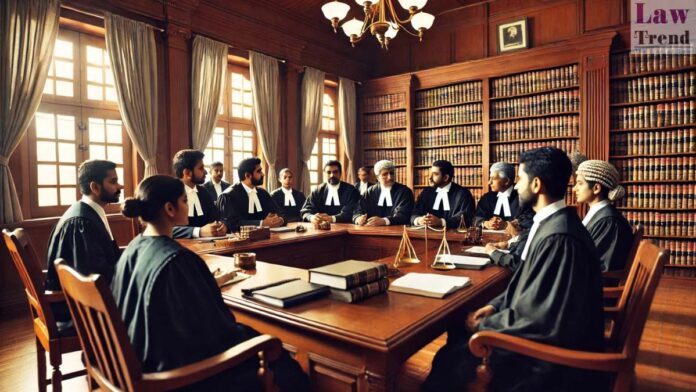The Bombay High Court has dismissed a Public Interest Litigation (PIL) seeking the constitution of permanent Internal Complaints Committees (ICCs) under the Sexual Harassment of Women at Workplace (Prevention, Prohibition and Redressal) Act, 2013 (PoSH Act) within the Bar Council of India (BCI) and the Bar Council of Maharashtra and Goa (BCMG).
A Division Bench of Chief Justice Alok Aradhe and Justice Sandeep Marne held that the PoSH Act applies strictly in situations involving an employer-employee relationship, which does not extend to the relationship between Bar Councils and practicing advocates.
“Thus, it is evident that the provisions of Act apply when there is an employer-employee relationship. Neither the Bar Council of India nor the Bar Council of Maharashtra and Goa can be said to be the employers of advocates … Thus, the provisions of the POSH Act, 2013 do not apply to advocates,” the Court held.
The PIL was filed in 2017 by the UNS Women Legal Association (Regd), which sought the establishment of permanent grievance redressal mechanisms under the PoSH Act to address sexual harassment complaints against lawyers. However, the Court ruled that since advocates are not employees of the Bar Councils, the statutory requirement to form ICCs does not extend to them.
The Court further clarified that the absence of ICCs in Bar Councils does not leave advocates without remedy. It pointed to Section 35 of the Advocates Act, 1961, which allows any person, including a woman advocate, to file a complaint with the State Bar Council for professional misconduct, including sexual harassment by fellow advocates.
Senior Advocate Milind Sathe, appearing for BCMG, informed the Court that Local Committees under Section 6 of the PoSH Act have already been constituted across all districts under the supervision of District Magistrates or Collectors.
Additionally, the Court noted that while the PoSH Act does not apply to advocates, it continues to be applicable to employees working for Bar Councils or Bar Associations, provided these bodies have more than ten employees.
In view of these observations, the High Court concluded there was no legal justification to mandate the constitution of ICCs within Bar Councils for the benefit of advocates and accordingly disposed of the petition.




